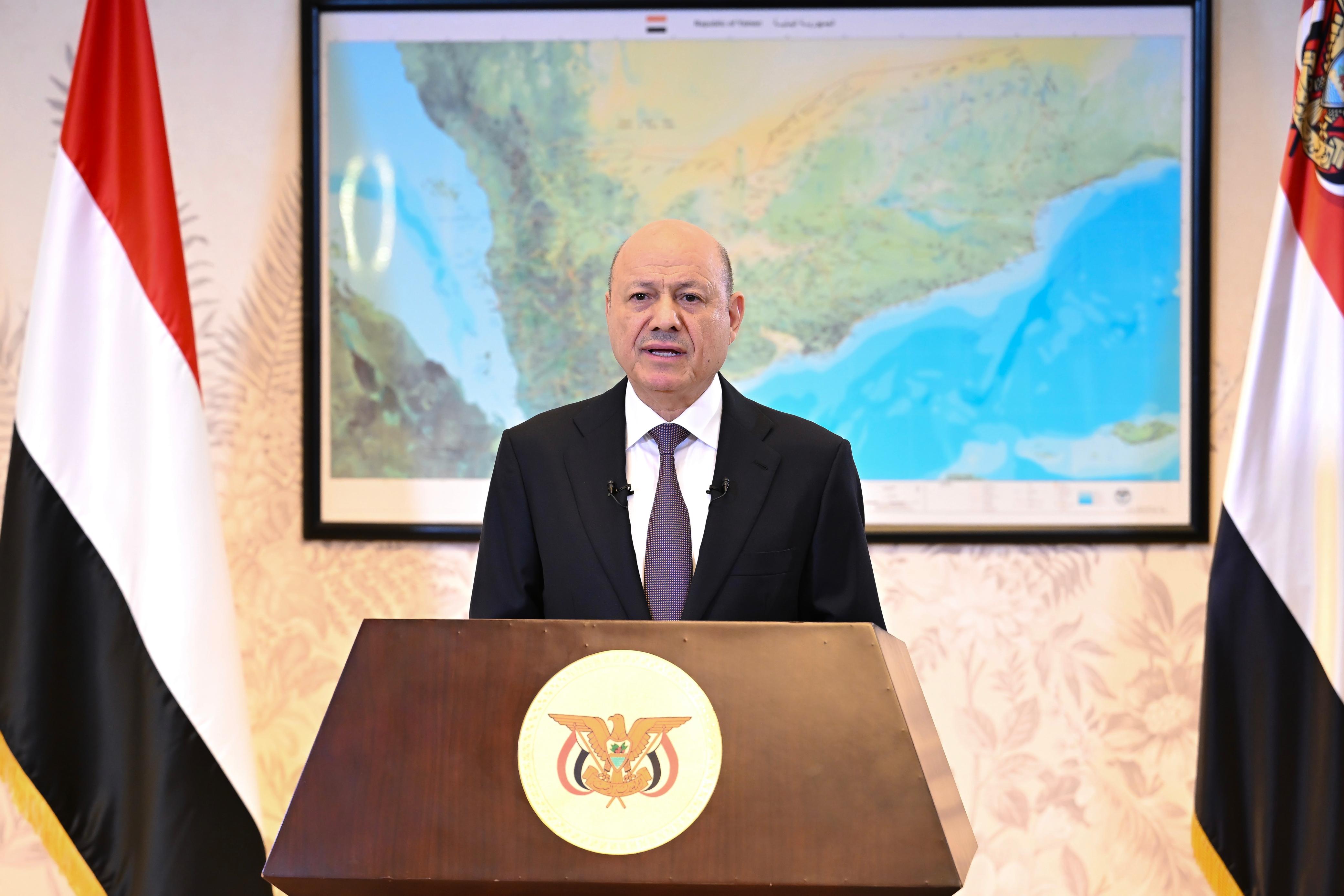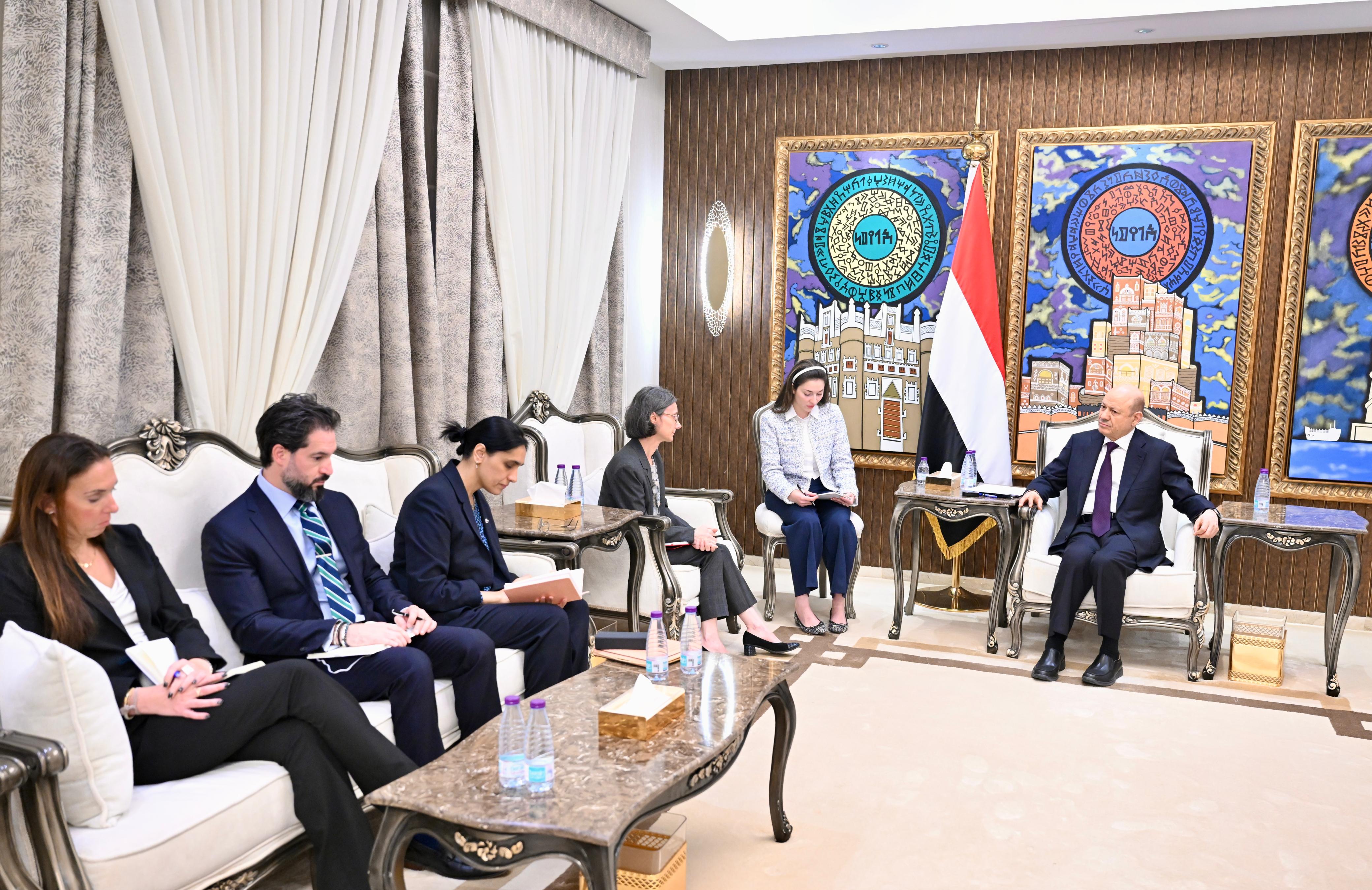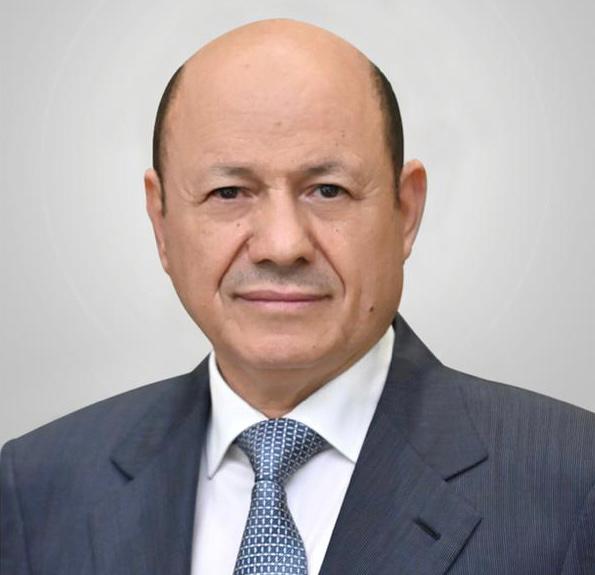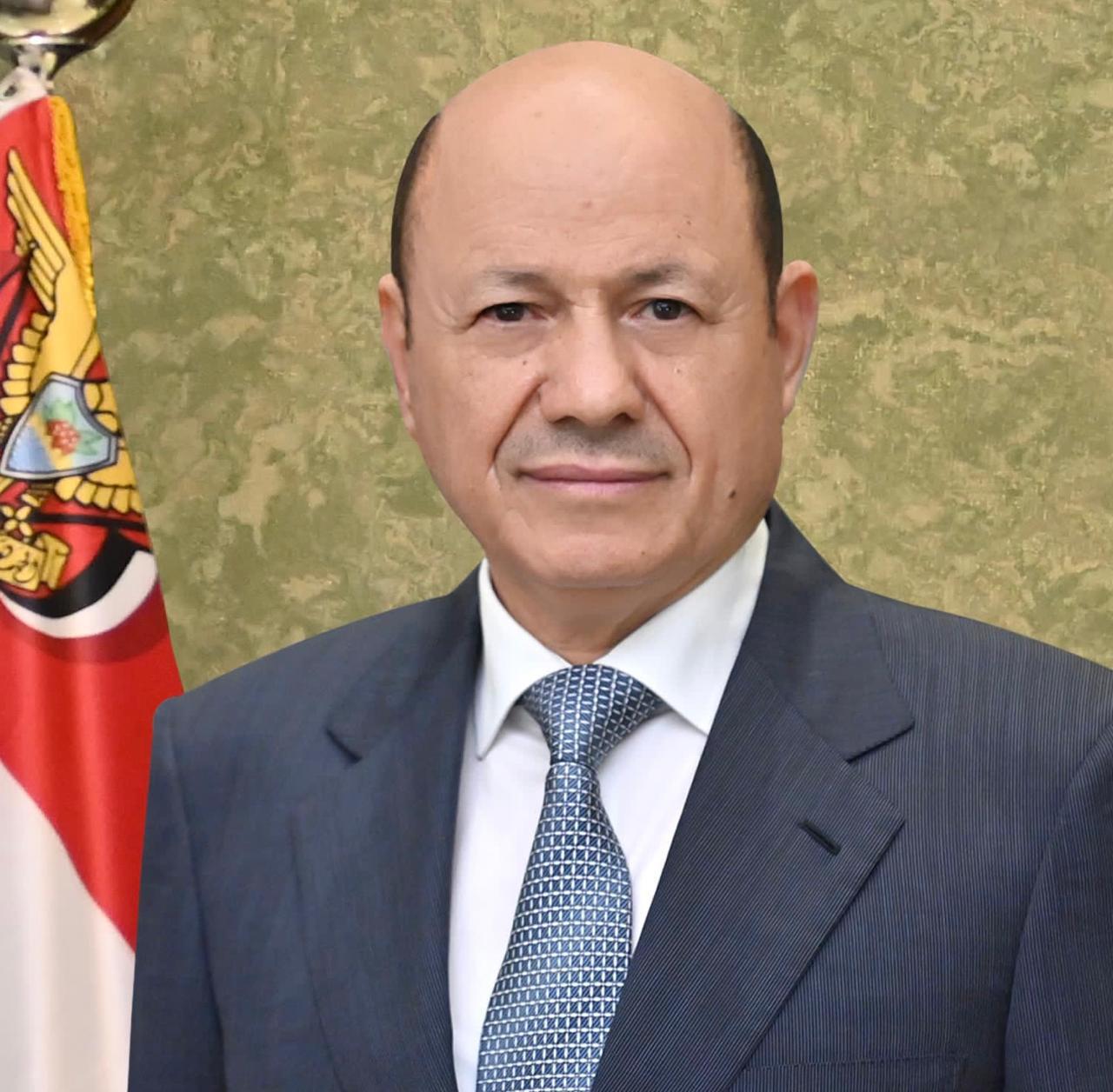
In His Address to Nation: President Al-Alimi Calls for Drawing Inspiration from Values of Unity to Confront Looming Houthi Terror Threat
Aden
His Excellency Dr. Rashad Mohammed Al-Alimi, President of the Presidential Leadership Council, called on the Yemeni people to mark the anniversary of Yemeni unification on May 22, 1990, as an opportunity for creative initiatives, a renewal of commitment, and the unification of media discourse across all components of the legitimate government. He urged rising to the level of the looming Iranian-backed Houthi threat that endangers all without exception.
In a speech marking the 35th anniversary of the National Day of the Republic of Yemen, President Al-Alimi emphasized that “national unity is not a mere slogan but a practical reality embodied through just institutions, independent authorities, and a civil state governed by good governance and equal opportunities.”
He asserted that “today’s vision of national unity stands in direct opposition to the Houthi theocratic project, which promotes death, hatred, and racism”. “This is the unity we believe in,” he stated: “a unity for the state, not for militias; for the republic, not for the imamate; a unity for citizenship, partnership, and diversity—not for domination and exclusion.”
President Al-Alimi considered that celebrating this historic day is both an expression of loyalty to those who sacrificed for a strong state and a renewed acknowledgment of past mistakes, with a firm commitment to correct the national course.
His Excellency saluted all Yemenis on this national occasion, which he described as the culmination of a great struggle—from the flames of the September Revolution to the torch of the October uprising, leading to the historic birth of the Republic of Yemen.
He highlighted that “southerners were the pioneers of the unification dream, initiating and championing it through thought and struggle. The anthem was southern, the flag was southern, and the initiative was southern in every sense, reflecting genuine intentions and noble aims,” he said.
Regarding the southern issue, His Excellency reaffirmed that it remains at the heart of any just political settlement. A true resolution, he said, requires more than superficial agreements; it demands full justice and adequate guarantees that enable the southern people to shape their future and determine their political, economic, and cultural status—thus strengthening the principles of partnership in power and wealth, in line with national, regional, and international references.
President Al-Alimi stressed that “bitter experiences, particularly after the Houthi coup backed by Iran, have proven that building a modern Yemeni state depends on three key conditions: Protecting the republican system, consolidating political pluralism, and establishing an equitable unity based on justice and equality—not on dominance and exclusion.”
These three pillars, he said, represent the essence of Yemen’s historical struggleand the foundation for a just state “that guarantees equal opportunity, allows citizens to determine their future, preserves national identity, and upholds good neighborly relations and international law as an active member of the Gulf, Arab, and international communities.”
He pointed out that the Council and government have already taken serious steps to correct the national path, including reinforcing the independence of state institutions, empowering law enforcement, addressing the aftermath of the 1994 civil war, and expanding fiscal and administrative decentralization in accordance with the constitution and the transitional phase’s references.
“We are not offering promises,” the President said, “but speaking about tangible actions and open options that we manage wisely and responsibly to maintain national unity and restore the state’s role as the true guarantor of rights and freedoms.”
He noted that the Council has worked in recent years to transform the spirit of national unity into practical measures—promoting consensus, supporting partnerships, empowering local governance, and prioritizing the southern issue.
“Despite enormous challenges and resource shortages exacerbated by Houthi terrorist attacks on oil export ports and maritime shipping”, he affirmed “the government has not shied away from its responsibilities. Instead of suppressing peaceful protests, the leadership viewed them—especially those led by inspiring women in Aden and other governorates—as a sincere motivation to accelerate reform and alleviate suffering, in collaboration with Gulf allies and international partners.”
President Al-Alimi reiterated the Council and government’s commitment to continuing reforms in electricity, energy, and essential services, building on progress made in recent years with generous support from Saudi Arabia and the United Arab Emirates, who have consistently stood by Yemen’s leadership and people.
Finally, His Excellency stressed the Council’s focus—alongside the Prime Minister and government—on setting clear priorities for the next stage, particularly economic and service-related commitments. He instructed the government and local authorities to take all necessary measures to deter lawbreakers, empower justice institutions, and swiftly deliver fairness to those wronged.

President of Leadership Council Receives Ambassadors of France and United Kingdom and U.S. Chargé d’Affaires
His Excellency Dr. Rashad Mohammed Al-Alimi, President of the Presidential Leadership Council, received today, Sunday, Ms. Catherine Corm Kammoun, Ambassador of the French Republic, and Ms. Abda Sharif, Ambassador of the United Kingdom

President of the Leadership Council Leaves Aden for Consultations on National Developments
Fri ، 05 Dec 2025 03:03

